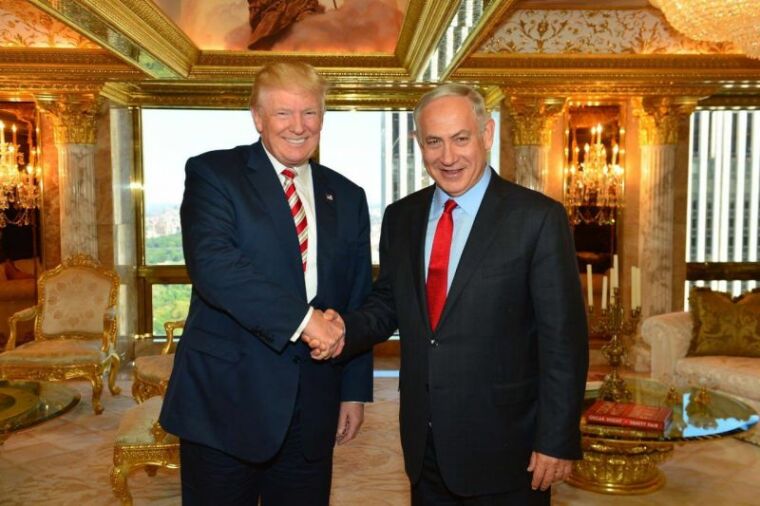Trump's promise: Jerusalem as the undivided capital of Israel

NEW YORK (Christian Examiner) – Israeli Prime Minister Benjamin Netanyahu has met with both presidential nominees in advance of the candidates' first debate Monday evening.
Netanyahu met with Clinton at her hotel for an hour and engaged Trump at his New York City home in the Trump Tower for 90 minutes.
According to the Clinton campaign, the Israeli leader and the former secretary of state discussed the recently-signed security agreement between the U.S. and Israel which provides $38 billion in military aid for the sole democracy in the Middle East.
A Clinton campaign aide also said the prime minister also discussed the Iran nuclear deal, which Netanyahu characterized as a grave mistake, and a "two-state solution of the Israeli-Palestinian conflict negotiated directly by the parties that guarantees Israel's future as a secure and democratic Jewish state with recognized borders and provides the Palestinians with independence, sovereignty, and dignity."
Clinton was said to have "reaffirmed her opposition to any attempt by outside parties to impose a solution, including by the UN Security Council."
At Trump's home, however, the Republican nominee leaned heavily in Israel's direction, offering a greater level of support for the Jewish homeland than any previous American administration has – even declaring Jerusalem as the country's undivided capital.
According to the Trump campaign, the candidate acknowledged that "Jerusalem has been the eternal capital of the Jewish People for over 3000 years, and that the United States, under a Trump administration, will finally accept the long-standing Congressional mandate to recognize Jerusalem as the undivided capital of the State of Israel."
In 1995, Congress passed the "Jewish Embassy Relocation Act," which authorized the relocation of the American embassy in Israel from Tel Aviv to Jerusalem. The act included a provision that allowed the president to issue a waiver at six-month intervals to keep the embassy in Tel Aviv. Since it was passed, every U.S. president – Republican and Democrat – has issued the waivers throughout his administration's tenure.
Trump said in March he would relocate the embassy if elected president. Palestinians, however, want part of the Old City of Jerusalem (East Jerusalem) as the capital of a Palestinian state.
Trump also said he wanted "a just and lasting peace" with the Palestinians, but not at the expense of Israeli security. He said the Palestinians have to renounce violence and recognize Israel's right to exist.
In May, the Israel Democracy Institute polled Israelis and found Hillary Clinton was viewed more favorably than Trump by 10 points (Clinton, 38; Trump 28). However, another poll in June suggested Israelis believe Trump would be better for Israel's security (Trump, 37; Clinton, 36). In the same poll, however, Israelis said Clinton would likely be the better president.
Israeli reaction to the meetings, however, was hardly mixed. On the prime minister's Facebook page, the comments related to his visit with Clinton were virtually all negative, with many citing Clinton's lack of trustworthiness, her acceptance of money from Israel's enemies, and her character. One person called her "the devil's daughter."
Trump, though comments on his meeting were more plentiful and generally more positive, still had detractors. Several called Trump and his advisers "anti-Semitic."